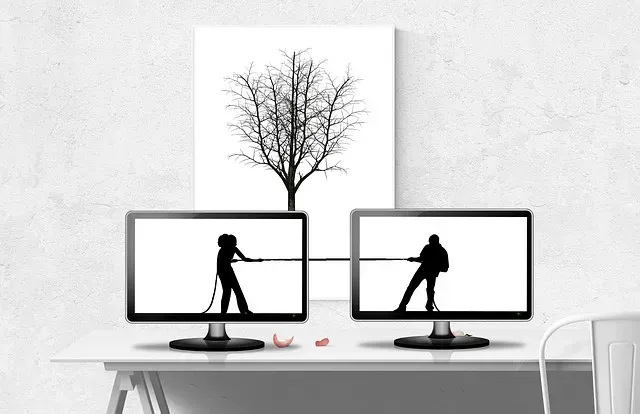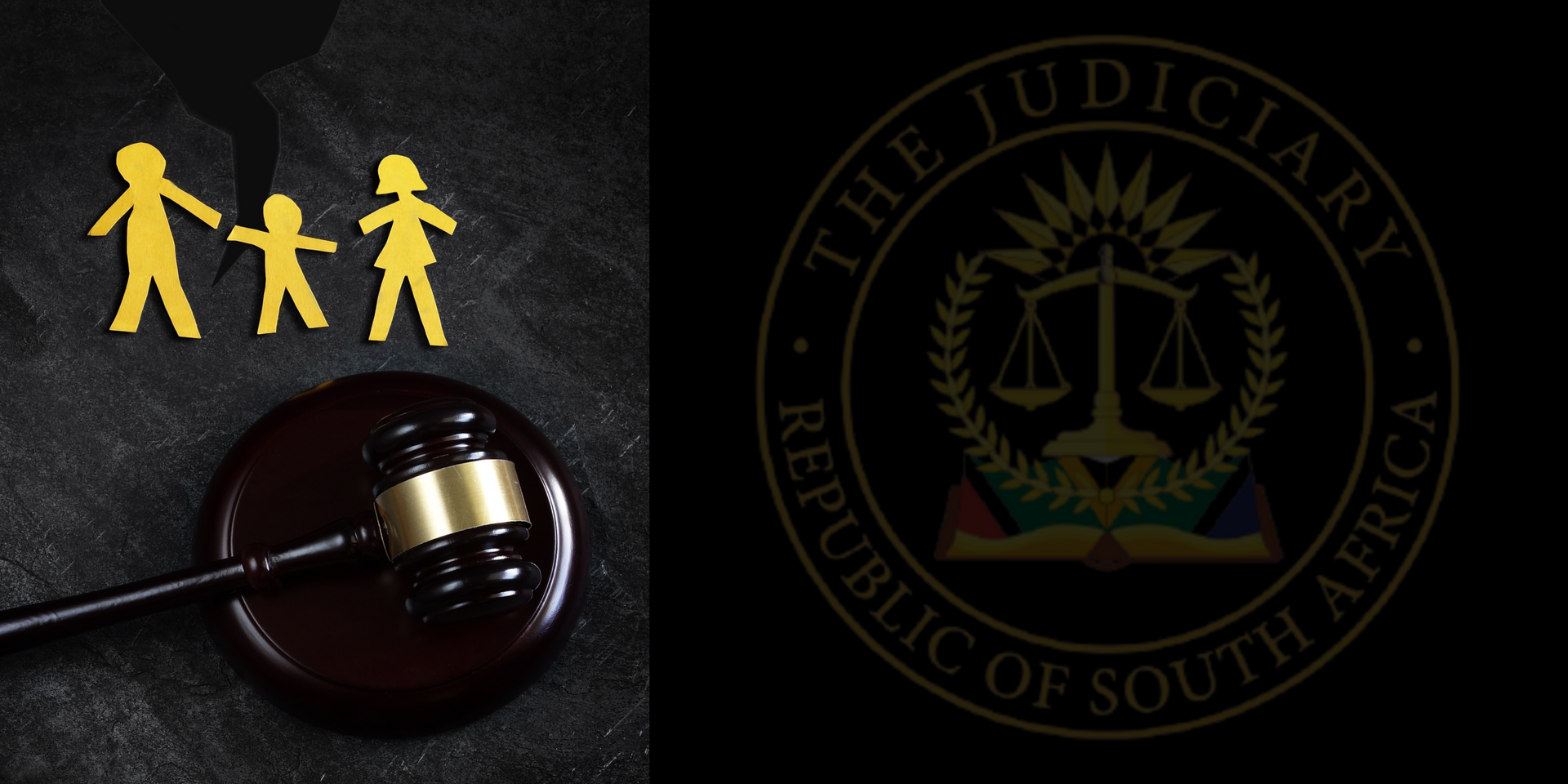Top 10 Divorce Questions in South Africa according to Google, 2023?
According to GOOGLE, the most frequently asked questions about divorce in South Africa include:
- How long does a divorce take in South Africa?
- What are the grounds for divorce in South Africa?
- How much does a divorce cost in South Africa?
- What is the process for getting a divorce in South Africa?
- What happens to assets during a divorce in South Africa?
- How does child custody work in a divorce in South Africa?
- Can you get a divorce without a lawyer in South Africa?
- How does spousal support work in a divorce in South Africa?
- Can you contest a divorce in South Africa?
- What is the role of the mediator in a divorce in South Africa?
In this post, we will tackle these questions for you and try to make it as simple as possible. We also offer a discovery session for the value of R950 to see how we can make this journey in your life as painless as possible, protecting your rights and those that you love. You are welcome to contact me at any time.

The Top 10 asked questions about divorce in South Africa of 2023 on Google include:
How long does a divorce take in South Africa?
The length of time it can take to obtain a divorce in South Africa can vary depending on several factors, including the level of cooperation between the parties and the complexity of the case. After the respondent has been served with the summons, a divorce that is uncontested and in which both parties agree to all of the terms of the divorce can typically be finalized within four to six weeks of the summons being served.
However, if the divorce is contested, which means that the parties do not agree on one or more issues, the process can take a great deal longer, typically lasting several months or even years. If the divorce is uncontested, however, the procedure can be completed in a matter of weeks. In these types of cases, the court will likely need to hear evidence from both sides before reaching a decision on the contentious issues at hand, which is a process that can be very time consuming.
Because the process of getting a divorce in South Africa involves several different legal requirements and procedures, it is strongly recommended that you seek the assistance of a qualified divorce attorney to ensure that your case is handled in an efficient and effective manner. It is important to note that the process of getting a divorce in South Africa involves various legal requirements and procedures.
What are the grounds for divorce in South Africa?
The "irretrievable breakdown" of a marriage is the sole legal basis for obtaining a divorce in South Africa. This is the only ground for divorce in the country. Nevertheless, this claim can be supported in one of the following ways:
Conduct that is unreasonable is a term that is used to describe the actions of one partner toward the other that make it intolerable for them to continue sharing a home together. Abuse, whether physical or emotional, adultery, or addiction to drugs are all examples of behaviour that might be considered unreasonable.
Desertion is when one partner in a marriage chooses to live apart from the other for a continuous period of at least a year without providing any reasonable cause or consent.
In this context, "separation" refers to the situation in which the spouses have been living separately for a continuous period of at least 12 months and there is no reasonable prospect of them getting back together.
Before a divorce can be granted, the court must in every circumstance be convinced that the marriage has ended in a way that cannot be restored. This is an essential point to keep in mind. In addition, to determine the terms of the divorce settlement, the court may take into consideration a variety of factors, such as what is in the children's best interests, if there are any. It is strongly suggested that you meet with an experienced divorce lawyer to discuss the particulars of your case and gain an understanding of the various legal options available to you.
How much does a divorce cost in South Africa?
The price of a divorce in South Africa can change significantly depending on several different aspects, including the difficulty of the case, the degree of cooperation displayed by both parties, and whether or not legal representation is obtained during the proceeding.
The costs associated with a divorce that is not contested can range anywhere from approximately R5,000 to R20,000, and this figure considers both court fees and attorney fees. If, on the other hand, the divorce is contested, which means that the parties cannot reach an agreement on one or more issues, the costs are likely to be significantly higher, frequently reaching the tens or even hundreds of thousands of Rand range.
It is important to note that the cost of a divorce can also be influenced by other factors, such as the value of any assets that are involved, the amount of spousal or child support that is being claimed, and the amount of time it takes to reach a settlement. This can significantly affect the overall cost of the divorce.
It is strongly suggested that you schedule a consultation with an experienced divorce lawyer in order to discuss the particulars of your case and gain an understanding of the possible financial implications. An attorney will also be able to give you advice on how to cut costs, such as resolving any disputes outside of court through alternative dispute resolution methods such as mediation or settlement negotiations.
What is the process for getting a divorce in South Africa?
In South Africa, getting a divorce typically entails going through the following steps in a specific order:
Consult with a qualified divorce attorney The first thing you should do when going through the process of getting a divorce is to consult with a qualified divorce attorney to go over your options and gain an understanding of the legal requirements and procedures that are involved.
Once you have decided to move forward with a divorce, your attorney will draft and file a summons with the court after you have informed them of your decision to proceed with the divorce. The summons is a legal document that outlines the specifics of the divorce, such as the reasons for the split and the agreements reached regarding child custody and spousal support.
Execution of the summons on the respondent the execution of the summons on your spouse, who is known as the respondent in legal terms, is the next step that must be taken in this process. It is possible for a sheriff to do this in person, or it can be done through registered mail.
Wait for the respondent's response: After the respondent has been served with the summons, they have a certain amount of time (typically 10-20 days) to respond to the allegations made against them. They have the option of either coming to an agreement with the terms of the divorce or contesting it if they take issue with any of the specifics.
Negotiate a settlement: If both parties agree to the divorce, the next step is to negotiate a settlement agreement that sets out the terms of the divorce, such as the division of assets and custody arrangements for any children that may be involved. If both parties agree to the divorce, the next step is to negotiate a settlement agreement.
Participate in court hearings (if necessary): If the divorce is contested, which means that the parties do not agree on one or more issues, the court may need to hear evidence from both parties before reaching a decision on the issues that are in dispute. If this is the case, you will need to attend court hearings.
Obtain a divorce order from the court in order to finalize the divorce. Once a settlement agreement has been reached (or a court ruling has been made), the final step is to obtain a divorce order from the court in order to finalize the divorce. This order puts an end to the marriage on a legal basis and outlines the parameters of the divorce settlement.
It is essential to keep in mind that the procedure for getting a divorce can be different from one situation to another, and that the steps that have been outlined above may not be applicable in all instances. It is strongly suggested that you seek the advice of an experienced divorce lawyer in order to discuss the particulars of your case and acquire an understanding of the relevant legal requirements and procedures.
What happens to assets during a divorce in South Africa?
In South Africa, the Matrimonial Property Act of 1984 dictates how the assets that are owned by a married couple are to be divided in the event of a divorce. The Act establishes three distinct categories of marital property regimes, each of which governs how property is owned and divided in the event of a divorce. These regimes are as follows:
In South Africa, the marital property regime with the highest prevalence rate is known as "in community of property." In this arrangement, the couple's assets and liabilities that were accumulated during the course of the marriage are considered to belong to the couple as a whole and are distributed equitably in the event that the marriage ends in divorce.
In a regime known as out of community of property with accrual, each spouse keeps separate ownership of their assets and liabilities; however, the increase in the value of their assets that occurred during the course of the marriage is split evenly between the parties in the event that the marriage ends in divorce.
A regime known as "out of community of property without accrual" is one in which each spouse maintains separate ownership of their assets and liabilities, and in the event of a divorce, there is no sharing of either assets or liabilities.
When it comes to the division of assets in the event of a divorce, the court will take a number of factors into consideration. These factors include the length of the marriage, the age and health of the parties, and the monetary requirements of any children who are a part of the situation. A relevant agreement or contract that was made between the parties during the course of their marriage will also be taken into consideration by the court.
It is important to note that the process of dividing assets during a divorce can be a difficult and emotionally taxing one. Because of this, it is strongly recommended that you consult with an experienced divorce attorney in order to make sure that your rights and interests are protected during this process.
How does child custody work in a divorce in South Africa?
In South Africa, child custody arrangements in a divorce are made with the best interests of the child as the primary consideration. The Children's Act of 2005 provides guidelines for determining child custody and access in divorce cases.
When deciding about child custody, the court will consider several factors, including the child's age, their relationship with each parent, the ability of each parent to provide for the child's needs, and the child's wishes (if they are old enough to express them).
There are two types of custody arrangements in South Africa:
Sole custody: This is when one parent has full legal and physical custody of the child. The other parent may have visitation rights, but they do not have any decision-making authority over the child.
Joint custody: This is when both parents share legal and physical custody of the child. They have equal decision-making authority over the child and share the responsibility for providing for the child's needs.
In addition to custody arrangements, the court will also make decisions about child support payments. The amount of child support is based on the needs of the child and the financial means of both parents.
It's important to note that child custody arrangements can be highly contentious in divorce cases, and it's recommended that you consult with a qualified divorce attorney to ensure that your rights and the best interests of your child are protected.
Can you get a divorce without a lawyer in South Africa?
It is possible to obtain a divorce in South Africa without the assistance of an attorney; however, doing so is not recommended in most cases. A qualified family law attorney can provide valuable guidance and support to help ensure that your rights and interests are protected throughout the divorce process, which can be a challenging and emotionally taxing experience.
In addition, there are specific legal requirements and procedures that must be followed in a divorce case. If these requirements are not met, the divorce case could be delayed, or other legal complications could arise. An experienced family law attorney can assist in ensuring that all required documentation is filed in the appropriate manner and that all legal procedures are adhered to throughout the divorce process.
Having said that, it is possible to file for an uncontested divorce without the assistance of an attorney if both parties agree on all aspects of the divorce, such as the division of assets and the child custody arrangements. If this is the case, the divorce will be considered an uncontested divorce. In spite of this, it is strongly suggested that you seek the advice of a divorce lawyer at the very least to ensure that all of the necessary legal requirements are satisfied and that your rights and interests are safeguarded.
In conclusion, obtaining a divorce in South Africa without the assistance of an attorney is technically possible, but it is generally not recommended due to the complexity of the legal process and the possibility that it will result in complications. It is in your best interest to speak with an experienced family law attorney about getting a divorce so that you can learn about your options and make sure that your rights and interests are protected.
How does spousal support work in a divorce in South Africa?
If one of the parties to a divorce in South Africa is in need of financial assistance, the court may decide to award spousal support, which is also referred to as maintenance. After a divorce, the financially dependent partner may be entitled to spousal support in order to assist them in maintaining their current standard of living.
The length of the marriage, the age and health of the parties, their respective earning capacities, and their financial needs will all be taken into consideration by the court when it comes time to decide regarding spousal support.
There are two different approaches that can be taken when determining support:
Rehabilitation maintenance is awarded for a predetermined amount of time to give the financially dependent spouse the opportunity to become financially independent. When determining the length of time for which rehabilitation maintenance should be awarded, the court will take into consideration a variety of factors, including the parties' ages, the state of their health, their levels of education and skill, and their employment histories.
Permanent maintenance is maintenance that is awarded for an indefinite period. This type of maintenance is typically reserved for situations in which the financially dependent spouse is unlikely to ever be able to support themselves due to factors such as their age, health, or other circumstances.
The capacity of the other spouse to pay will play a significant role in determining the amount of spousal support that will be awarded to the financially dependent partner. It is essential to keep in mind that spousal support is not an automatic entitlement, and when deciding whether to award spousal support, the court will consider all the relevant factors in the case.
If you are going through a divorce and are concerned about spousal support, it is highly recommended that you consult with an experienced divorce attorney to gain a better understanding of your legal rights and available options.
Can you contest a divorce in South Africa?
It is possible to challenge a divorce in South Africa, but doing so is not something that takes place very frequently. When one party contests the divorce, they are stating that they do not agree to the divorce or that they do not agree with the grounds that the other party has presented for the divorce.
If one of the parties contests the divorce, the matter will be brought before the court, and the judge will be required to make a decision regarding whether the divorce should be granted. The court will consider several factors, such as the reasons for the divorce, the conditions under which the parties are living, and what is in the children's best interests, if there are any.
It is important to note that contesting a divorce can be a lengthy and expensive process. Because of this, contesting a divorce is generally not recommended unless there is a legitimate reason to contest the divorce, such as if there are concerns about child custody or the division of assets.
It is recommended that you consult with a qualified divorce attorney if you are considering contesting a divorce, have been served with divorce papers, and are uncertain about your rights. This will help you understand your options and ensure that your rights are protected during the divorce process.
What is the role of the mediator in a divorce in South Africa?
When divorcing in South Africa, it is possible for a mediator to play an important part in the process by assisting the parties in coming to an agreement regarding the terms of their divorce. A mediator is an impartial third party who has received training to assist in the facilitation of discussions and negotiations between the parties involved.
The mediator's job is to assist both parties in determining the issues that must be settled to finalize the divorce and to guide them through the steps necessary to arrive at an agreement that is acceptable to both parties. The mediator does not make any decisions on behalf of the parties; rather, he or she facilitates the parties' ability to communicate clearly and negotiates a compromise that is satisfactory to all parties involved.
In cases involving divorce, mediation can be an extremely helpful tool, particularly in those cases in which the parties are able to communicate clearly and are willing to work together cooperatively in order to reach an agreement. Mediation can help the parties maintain a better relationship after the divorce, which can be especially important if they have children together. Mediation can also be less expensive and less time-consuming than going to court. If the parties have children together, this can be especially important.
It is essential to keep in mind, however, that mediation is not the best course of action in every circumstance. It is possible that mediation is neither safe nor the best course of action in certain circumstances, such as when there are allegations of domestic violence or abuse. Additionally, it is possible that mediation will not be successful if the parties involved are unable or unwilling to communicate effectively.
It is highly recommended that you consult with a qualified divorce attorney if you are currently going through a divorce in South Africa and are interested in exploring mediation as a potential option.


















































